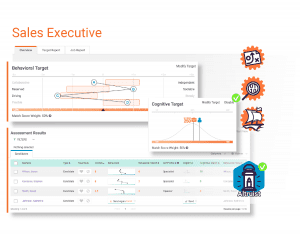Behavioural Analytics Can Make You a Better Golfer
By Thomas MacIntosh |
3 min read
Behavioural Analytics Can Make You a Better Golfer
Fred Couples and New Technology
Fred Couples, a storied PGA Tour Veteran, began his pro career in 1980. In 1982, as a young 22 year old, he averaged 286.7 yards with his driver. [1]
27 years later at 49 years old, while battling serious back injuries, Couples averaged 297 yards off the tee. [2]
Obviously his back injuries didn’t make him a better golfer. So what did?

Fred Couples on The PGA Tour.
The technology.
A recent study had Chad Campbell, a PGA professional, hit balls using a relic Byron Nelson wooden shaft driver against the latest in driver technology. Unsurprisingly, the report concluded that the 150-gram steel shaft gave Campbell about a 25% increase in drive-carry. [3] It is these sort of advancements that have led to some of golf’s most memorable moments. Louis Oosthuizen’s 2012 double-eagle at The Masters would have been unthinkable just 20 years prior. The technology made it impossible to get the length needed.
So obviously advancements in golf technology and the resulting products can make any golfer better simply by using them. But what about technology that makes the actual athlete better?
Analytics and The Game
Behavioural analytics have increasingly become the trend for the modern athlete. We all know someone who is naturally inclined to be great at one sport. Beyond their physical characteristics, these individuals have the personality to fit their discipline. By identifying possible blind spots, athletes can actually make themselves better suited to play the sport they do.
Say you wanted to be a professional golfer, but after taking a behavioural assessment like the Predictive Index, found you had a low detail-orientation. How would this play out in your game?
You probably spend less time reading the green, less time creating a detailed course report in the pre-tournament rounds, and give less attention to how the environmental factors are affecting your play. You may also realize you have a high risk tolerance, and that you are more likely to cut a patch of trees on a dog-leg, or, that you are more intense and driving, leading to an impatient style of play.

The Predictive Index™ can show an athlete where they may need to focus their practice.
On the other hand, you may realize you are task-oriented, and that your focus will commit to the single objective of a birdie instead of being distracted by the people around you.
Although there are benefits and drawbacks to all of these traits, the importance is in realizing where your natural strengths and weaknesses apply, and how they fit into your sport.
How do Coaches Use This?
From a coaching perspective, understanding each player at a behavioural level allows you to tailor your coaching to their weak points. Just the same as your physical game, improvements come from spending time in your least-comfortable zones. Going back to the earlier example, this may mean forcing yourself to spend a certain amount of time reading the green, or committing to creating a detailed pre-tournament course plan.
By understanding your DNA, and how that translates to your sport, you can work on the parts of your game you may not even realize are holding you back.
Want to complete a free behavioural assessment with a detailed read back to find where you can improve your game? Contact Thomas MacIntosh at tmacintosh@predictivesuccess.com or call (905) 430-9788×104.
Sources:
[1] How Far Would Golf’s Legends Drive the Ball Using Modern Equipment?” PGA.com. November 02, 2017. Accessed July 26, 2019. https://www.pga.com/golf-instruction/golf-buzz/how-far-would-golfs-legends-drive-ball-using-modern-equipment. [2] ibid. [3] ibid.Related Blogs
Employee Retention Programs: Keeping Your Best Talent Happy
Employee retention is a cornerstone of business success. High turnover rates can be detrimental, leading to increased recruitment costs, loss of organizational knowledge, and decreased morale. At Predictive Success, we understand that retaining top talent
Are You Equipped with the Right Salesperson?
Introduction: In today's competitive market, many variables are beyond your control. However, one crucial factor you can manage is assembling the right sales team to drive your business forward. Having the optimal sales team is
Mastering Pre-Employment Testing to Find the Perfect Fit
Hiring the right talent is critical to the success of any organization. A single mis-hire can result in significant costs, including wasted time, lost productivity, and the expense of rehiring and retraining. Pre-employment testing has


